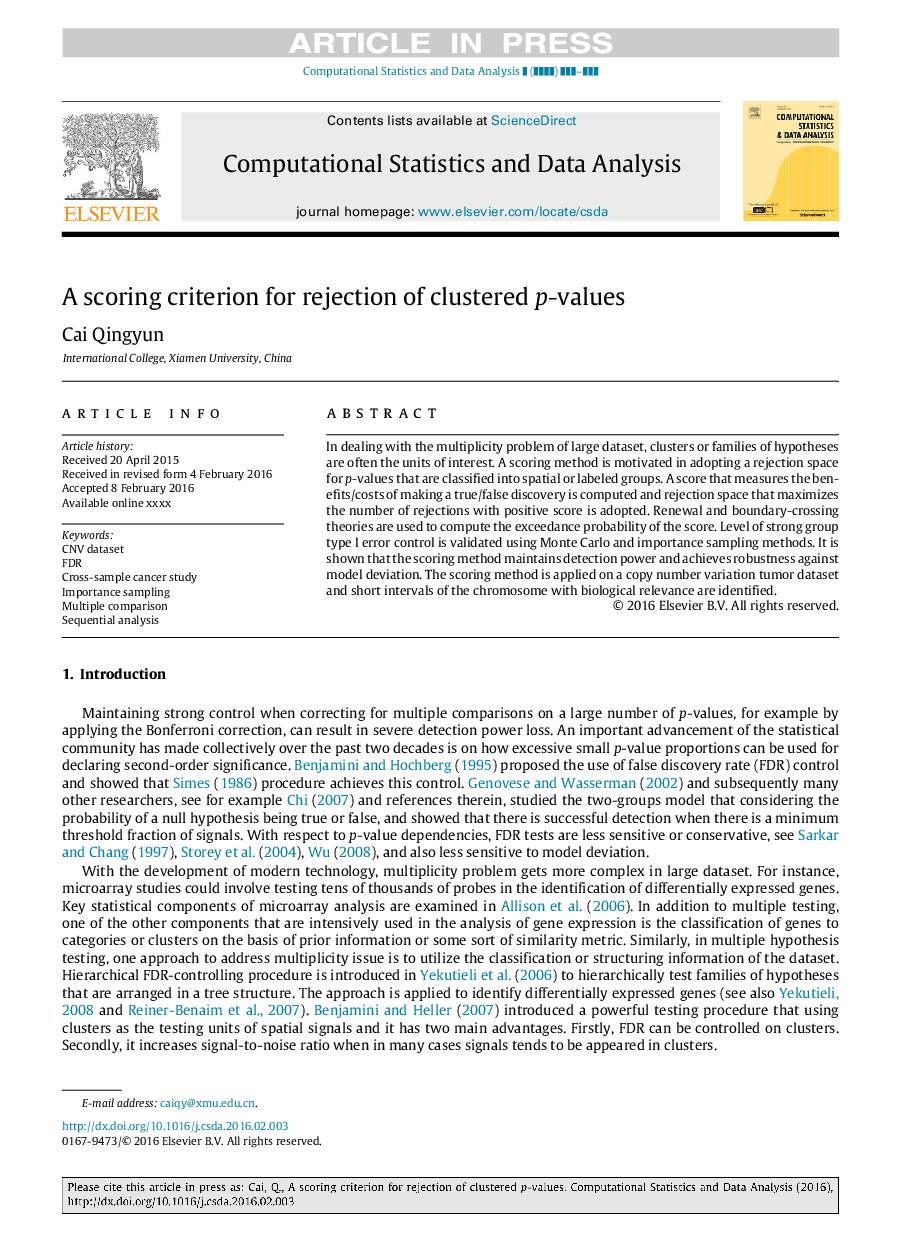| Article ID | Journal | Published Year | Pages | File Type |
|---|---|---|---|---|
| 6868819 | Computational Statistics & Data Analysis | 2018 | 10 Pages |
Abstract
In dealing with the multiplicity problem of large dataset, clusters or families of hypotheses are often the units of interest. A scoring method is motivated in adopting a rejection space for p-values that are classified into spatial or labeled groups. A score that measures the benefits/costs of making a true/false discovery is computed and rejection space that maximizes the number of rejections with positive score is adopted. Renewal and boundary-crossing theories are used to compute the exceedance probability of the score. Level of strong group type I error control is validated using Monte Carlo and importance sampling methods. It is shown that the scoring method maintains detection power and achieves robustness against model deviation. The scoring method is applied on a copy number variation tumor dataset and short intervals of the chromosome with biological relevance are identified.
Related Topics
Physical Sciences and Engineering
Computer Science
Computational Theory and Mathematics
Authors
Cai Qingyun,
